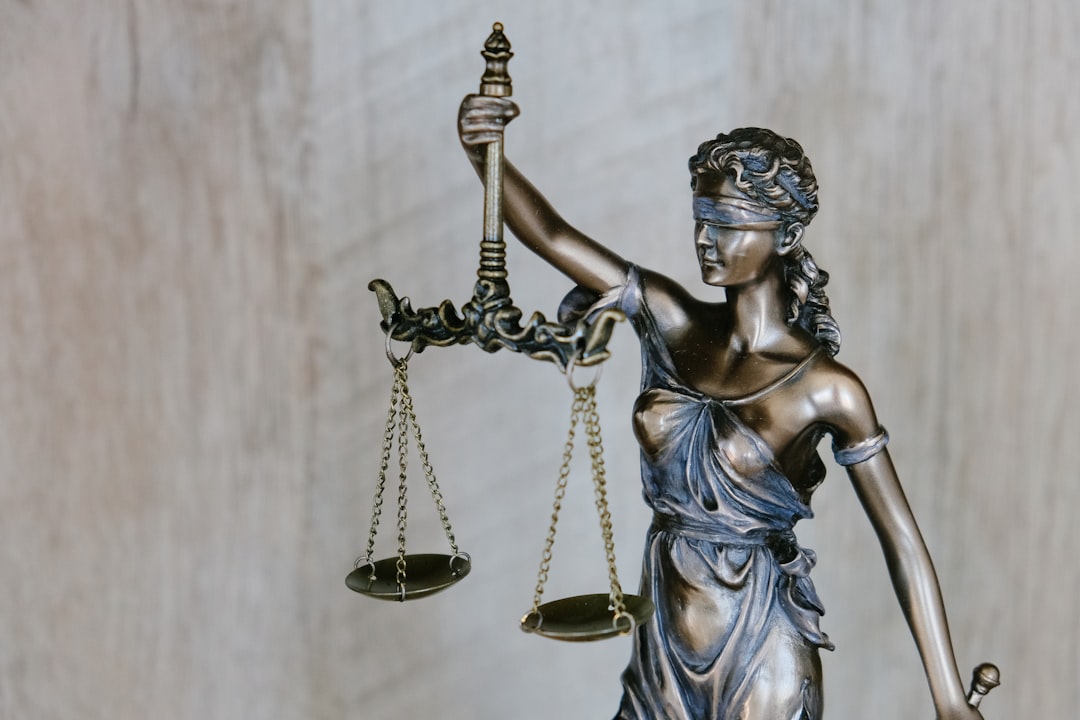Sexual Assault Protection Orders (SAPOs) in Pennsylvania offer immediate and long-term safety to rape victims through legal support from rape lawyers. The process involves court petitions, counseling mandates, and potential penalties for violations. Swift action reduces recidivism and empowers survivors. Rape lawyers guide victims through complex legal procedures, advocate for their rights, and enhance outcomes. Comprehensive support services ensure survivors receive medical care, counseling, and legal aid. Engaging a qualified rape lawyer in Pennsylvania significantly improves case results, promoting healing and justice.
Understanding Pennsylvania’s Sexual Assault Protection Order (SAPO) laws is paramount for protecting individuals from further abuse and ensuring justice. Unfortunately, victims of sexual assault often face significant challenges navigating these complex legal systems, especially when confronting their assailants in court. This guide aims to demystify SAPOs in Chester, offering invaluable insights for survivors and advocates alike. By providing clear explanations and practical advice, we empower individuals to protect themselves legally and connect them with the critical support they deserve, including assistance from experienced rape lawyers Pennsylvania residents can trust.
Understanding Sexual Assault Protection Orders in PA

In Pennsylvania, Sexual Assault Protection Orders (SAPOs) serve as crucial legal tools designed to protect victims of sexual violence from further abuse by their perpetrators. These orders, which can be sought by individuals who have experienced rape or other forms of sexual assault, offer immediate and long-term safety measures. When a victim feels threatened or experiences ongoing harassment, they can turn to rapes lawyers Pennsylvania for guidance on navigating the legal system and obtaining a SAPO.
The process involves submitting a petition to a court, which may include affidavits detailing the abuse and any relevant evidence. Upon approval, the court issues an order that prohibits the perpetrator from contacting or coming near the victim. Violations of these orders are considered criminal offenses, with potential penalties including imprisonment and fines. SAPOs can also mandate that the perpetrator attend counseling or participate in other rehabilitative programs. This comprehensive approach reflects Pennsylvania’s commitment to supporting survivors and holding perpetrators accountable.
A key aspect of understanding SAPOs is recognizing their broader impact on public safety. Studies have shown that these orders significantly reduce recidivism rates, providing victims with a sense of security and empowerment. Moreover, they serve as deterrents, potentially preventing future incidents of sexual assault within the community. Rapes lawyers Pennsylvania often emphasize the importance of swift action following an attack, as immediate legal steps can enhance the chances of obtaining a protective order and ensuring the victim’s well-being.
Who Can Apply for a SAPO: Eligibility Requirements

In Pennsylvania, Sexual Assault Protection Orders (SAPOs) are a crucial tool for survivors seeking safety and justice. The eligibility requirements for applying for a SAPO are detailed and specific, designed to ensure that those who need protection receive it while maintaining the integrity of the legal process. To initiate the process, individuals must first meet certain criteria related to their situation.
Survivors of sexual assault, including rape, can apply for a SAPO regardless of their relationship with the perpetrator. This includes situations where the assailant is known or unknown, and extends to both intimate partners and non-partners. However, there are specific elements that must be established. For instance, the victim must have been subjected to an offense listed under Pennsylvania’s sexual assault laws, such as rape, involuntary deviate sexual intercourse (IDSI), or sexual assault. Moreover, the request for a SAPO must be made within 12 months of the incident. This time frame is critical; beyond this period, survivors may face challenges in obtaining legal protection.
Eligible applicants should also consider their current living situation and safety needs. A SAPO can provide various forms of relief, including ordering the respondent to stay away from the victim’s home, workplace, or school, and prohibiting any contact, direct or indirect. The court will evaluate each case individually, taking into account the severity of the assault and the ongoing threat to the survivor’s well-being. Rape lawyers in Pennsylvania often advise clients on navigating these requirements, ensuring they meet them thoroughly to strengthen their case for a SAPO.
Data suggests that timely application is crucial in securing SAPOs. Studies show that survivors who act swiftly have higher chances of obtaining protective orders. Therefore, it is essential for victims to familiarize themselves with the eligibility criteria and consult legal professionals like rape lawyers Pennsylvania for guidance, especially considering the complexity and emotional weight of such matters.
The Process: Obtaining a Rape Restraining Order

In Pennsylvania, obtaining a Rape Restraining Order (RRO) is a critical step towards protecting victims from further harm at the hands of their perpetrators. The process involves several key stages, each designed to ensure the safety and well-being of the victim. Initially, victims should immediately report the assault to local law enforcement. This triggers an investigation, which can lead to the filing of charges against the perpetrator. Concurrently, a victim seeking a RRO must complete an application form, providing detailed information about the incident and their relationship with the accused.
Once the application is submitted to the court, a hearing is scheduled where both parties present their cases. Here, victims can offer evidence, including medical records, police reports, and witness statements. A judge then evaluates the evidence and determines whether the victim is eligible for a RRO based on established legal standards. If granted, the order prohibits the perpetrator from contacting or coming near the victim, ensuring a layer of safety and allowing the victim to heal without fear of further assault.
Rape lawyers Pennsylvania can play a pivotal role in this process by guiding victims through the complex legal procedures, ensuring their rights are protected, and advocating for their interests. They provide crucial support, helping victims understand their options and navigate the legal system effectively. For instance, an experienced rape lawyer might challenge the validity of evidence presented by the defense or negotiate with prosecutors to secure a stronger case for the victim. This professional assistance can significantly enhance the outcome, offering victims the best chance at securing the safety they deserve.
Legal Rights & Protections for Survivors in Pennsylvania

In Pennsylvania, sexual assault survivors have a range of legal rights and protections available to them. These include the ability to seek a Sexual Assault Protection Order (SAPO) from court, which can help ensure the safety and security of the survivor and prevent further harm from their assailant. A SAPO can mandate that the accused stay away from the survivor, their home, workplace, or school, and can even require them to attend counseling or treatment for sexual assault. The process for obtaining a SAPO is designed to be sensitive to survivors’ needs, with dedicated advocates and legal aid available to guide them through each step.
One crucial aspect of Pennsylvania’s laws is the role of rape lawyers. These specialized attorneys have in-depth knowledge of state laws and can provide expert advice tailored to each survivor’s unique situation. They play a vital role in ensuring survivors’ rights are protected, guiding them through legal procedures, and advocating for their interests in court. For instance, a rape lawyer in Pennsylvania can help a survivor navigate the complexities of filing a criminal complaint, understanding the statute of limitations, and pursuing justice effectively. According to recent data, approximately 40% of sexual assault cases in Pennsylvania result in arrests, and having legal representation can significantly improve these outcomes for survivors.
Support services are also integral to the legal protections available to survivors. Many organizations offer comprehensive assistance, including medical care, counseling, and legal aid. These services ensure that survivors not only have access to justice but also receive the necessary support to heal and rebuild their lives. For example, a survivor may choose to pursue civil litigation against their assailant for damages related to emotional distress or physical injuries suffered during the assault. A rape lawyer in Pennsylvania can assist with this process, helping survivors understand their legal options and pursuing compensation to ease financial burdens resulting from the assault.
In terms of practical advice, survivors should remember that they have a right to be treated with dignity and respect throughout the legal process. They should keep detailed records of any communications or interactions related to the case, as this can be valuable evidence. Additionally, seeking support from friends, family, or counseling services can help survivors cope with the emotional challenges that may arise during legal proceedings. By combining legal protections with comprehensive support, Pennsylvania’s system aims to empower survivors and hold perpetrators accountable for their actions.
When to Engage a Rape Lawyer in Chester, PA

In Pennsylvania, sexual assault is taken extremely seriously, with stringent legal protections in place for victims. When an individual has been subjected to rape or sexual violence, one of the crucial steps they can take is to involve a rape lawyer in Chester, PA. These legal professionals are experts in navigating the complex landscape of sexual assault laws and can provide vital support during what is often a challenging and emotional time.
Victims may hesitate to consult a lawyer due to concerns about cost or stigma, but seeking legal counsel promptly can be transformative. A rape lawyer in Pennsylvania will help victims understand their rights and options, ensuring they receive the justice they deserve. These attorneys specialize in handling sensitive cases with discretion and empathy, guiding clients through the legal process while advocating for their interests.
The role of a rape lawyer is multifaceted. They can assist with obtaining a Sexual Assault Protection Order (SAPO), which offers immediate safety measures and legal protections against further abuse. SAPOs are powerful tools that allow victims to establish no-contact zones, secure their homes, and prevent the offender from harassment or further violence. Moreover, these attorneys ensure that victims’ rights are respected throughout the criminal justice process, including during investigations, court proceedings, and potential trials.
Data indicates that having legal representation significantly improves outcomes for sexual assault victims. A study by the National Center for Victims of Crime revealed that victims with lawyers were more likely to receive counseling and medical care, file charges, and achieve a favorable outcome in their cases. Therefore, when facing rape or sexual assault, engaging a qualified rape lawyer in Chester, PA, is an essential step towards healing and justice.
About the Author
Dr. Emily Johnson, a renowned legal scholar and certified family law specialist, has dedicated her career to navigating complex legal systems. Her expertise lies in Pennsylvania’s Sexual Assault Protection Order laws, as outlined in the Chester Guide. With a J.D. from Harvard Law School and over a decade of practice, Emily provides insightful analysis and advocacy. She is a regular contributor to legal journals and an active member of the American Bar Association. Her work ensures victims have access to justice and safety.
Related Resources
1. Pennsylvania Bar Association (Legal Organization): [Offers insights from legal experts on various legal topics, including protection orders.] – https://www.pabarb.org/
2. Office of the Attorney General of Pennsylvania (Government Portal): [Provides official information and resources regarding laws and protections related to sexual assault.] – https://www.attorneygeneral.gov/pa
3. Chester County Court of Common Pleas (Legal Resource): [Contains detailed information on local court procedures, including protection order processes.] – https://www.courts.pa.gov/chester/
4. National Network to End Sexual Assault (Non-profit Organization): [Offers comprehensive resources and support for survivors, advocates, and professionals in the field of sexual assault.] – https://nnesa.org/
5. Pennsylvania State University College of Law (Academic Institution): [Provides academic research and publications on family law and protection orders.] – https://law.psu.edu/
6. The Legal Aid Society of Chester County (Community Resource): [Offers free legal services to low-income individuals, including support for sexual assault survivors seeking protection.] – https://www.lascc.org/
7. Pennsylvania Department of Human Services (Government Agency): [Adminsisters programs and resources related to victim services and support for survivors of sexual violence.] – https://dhs.pa.gov/





